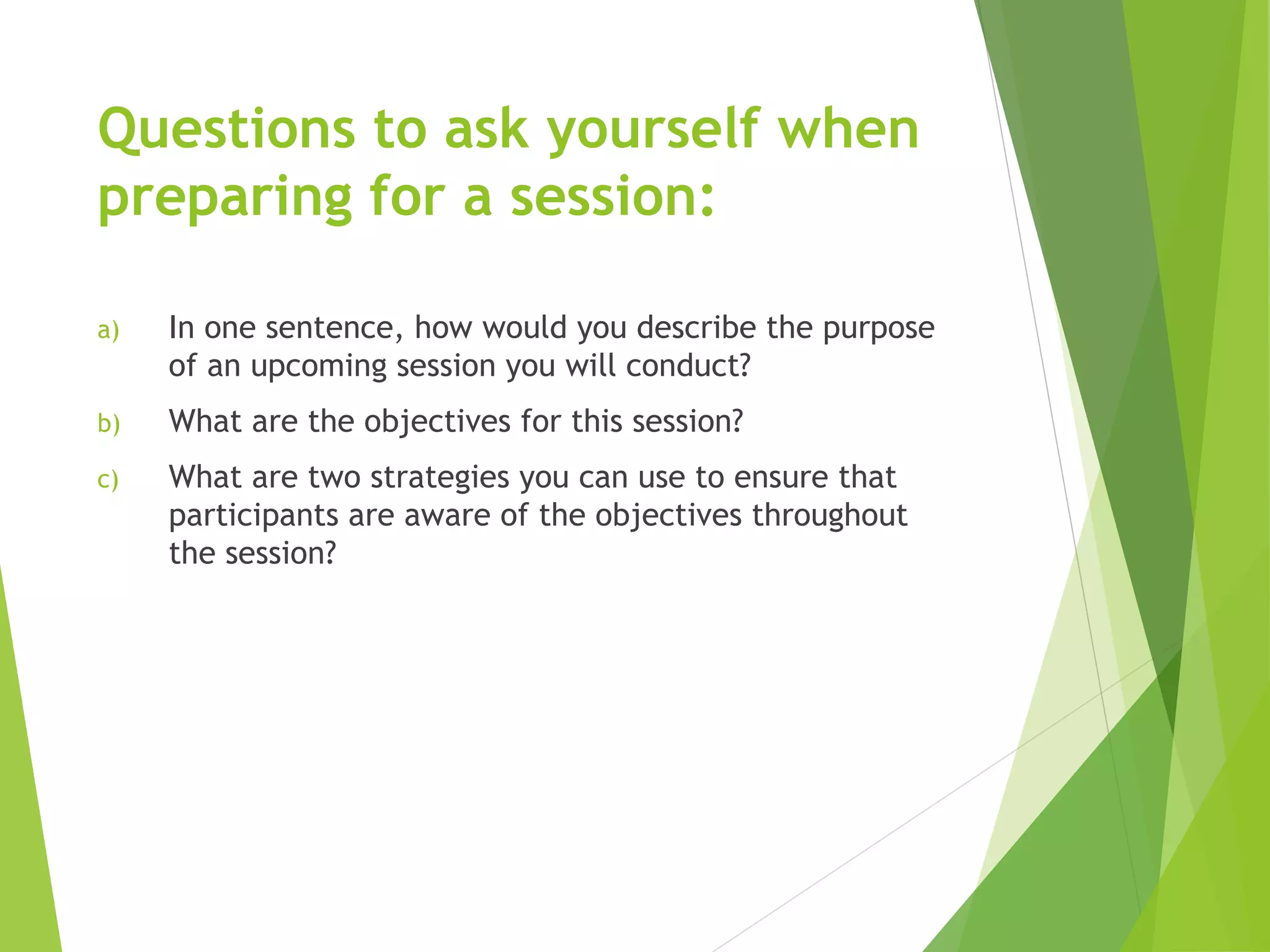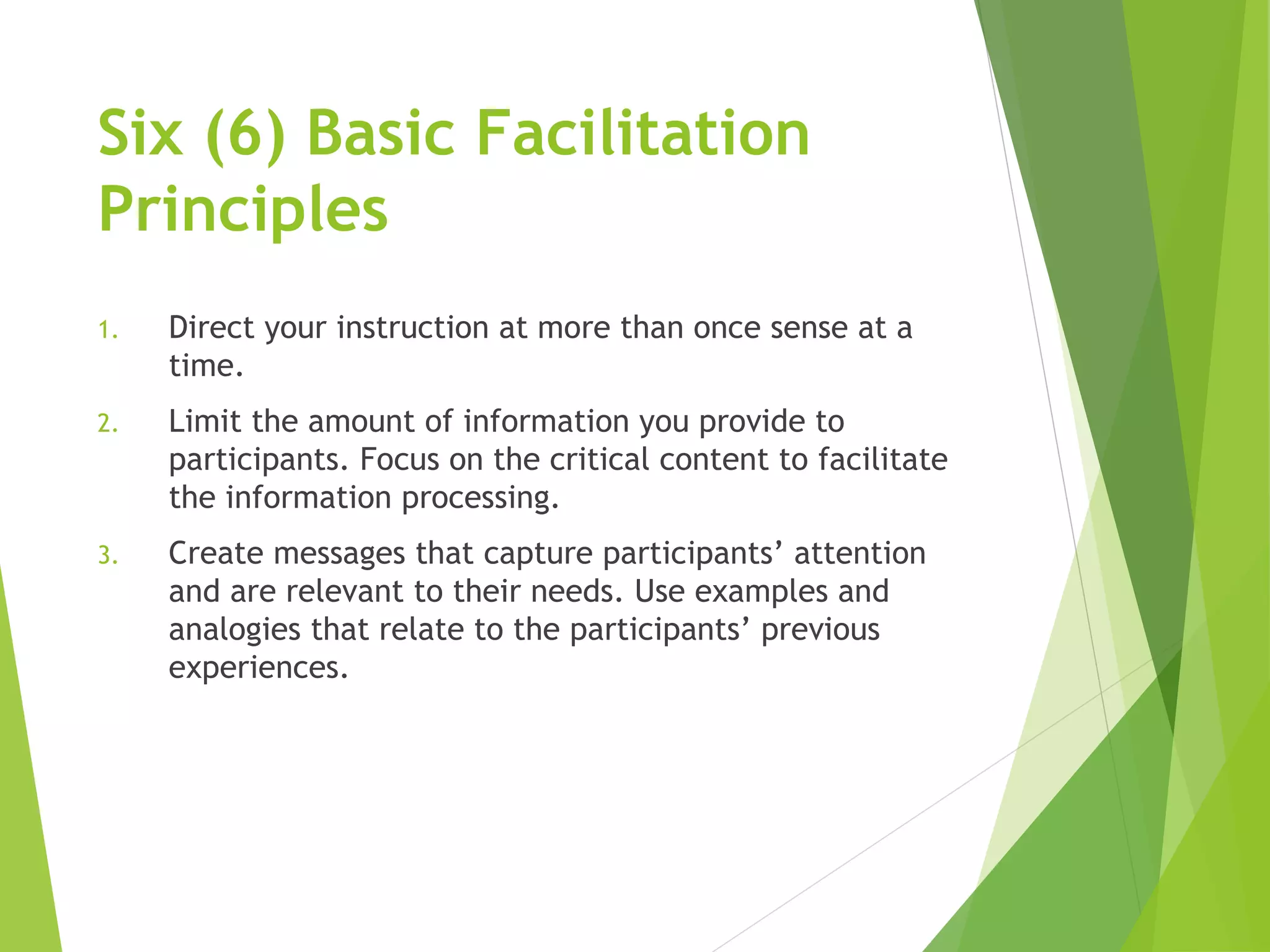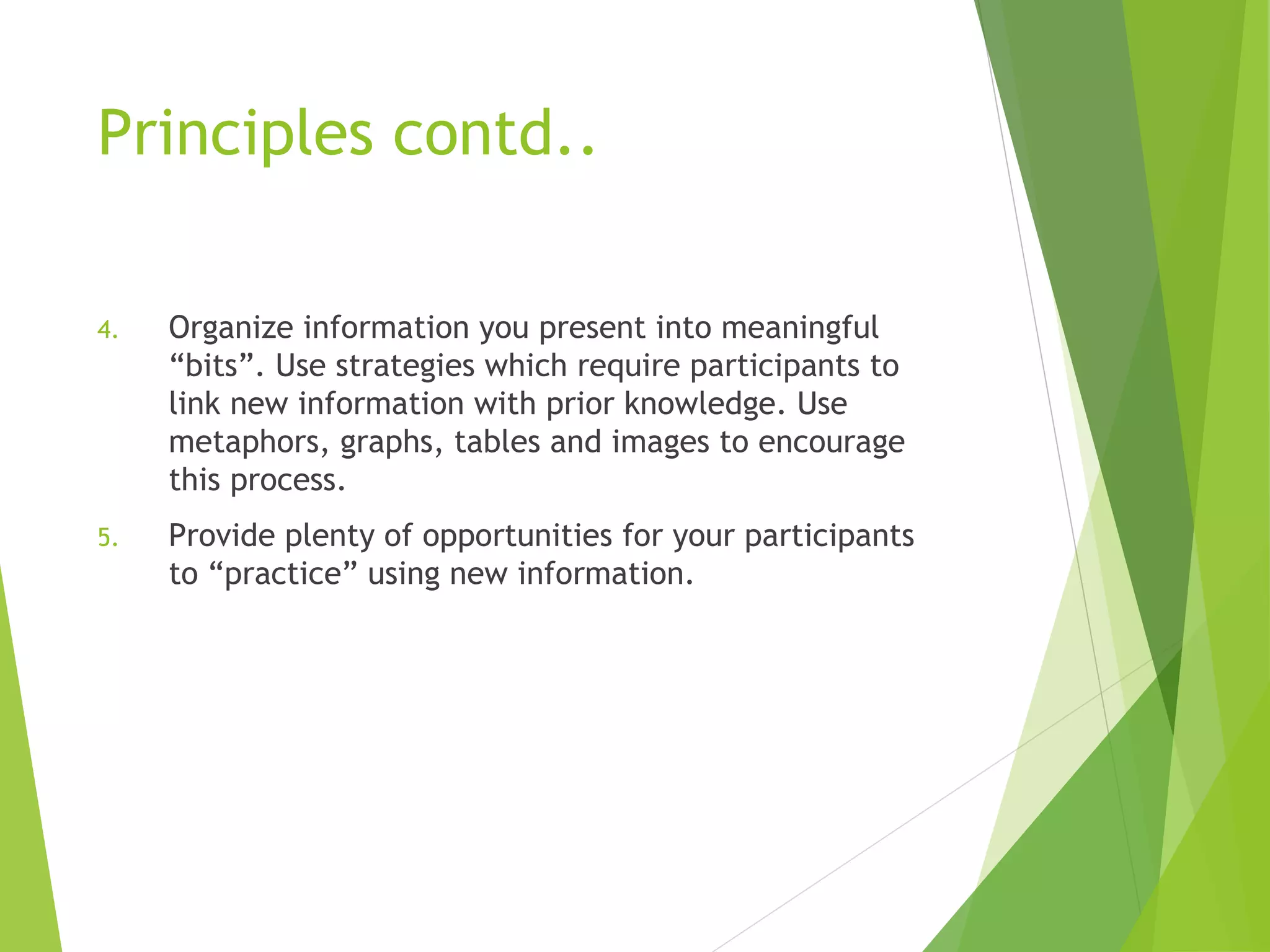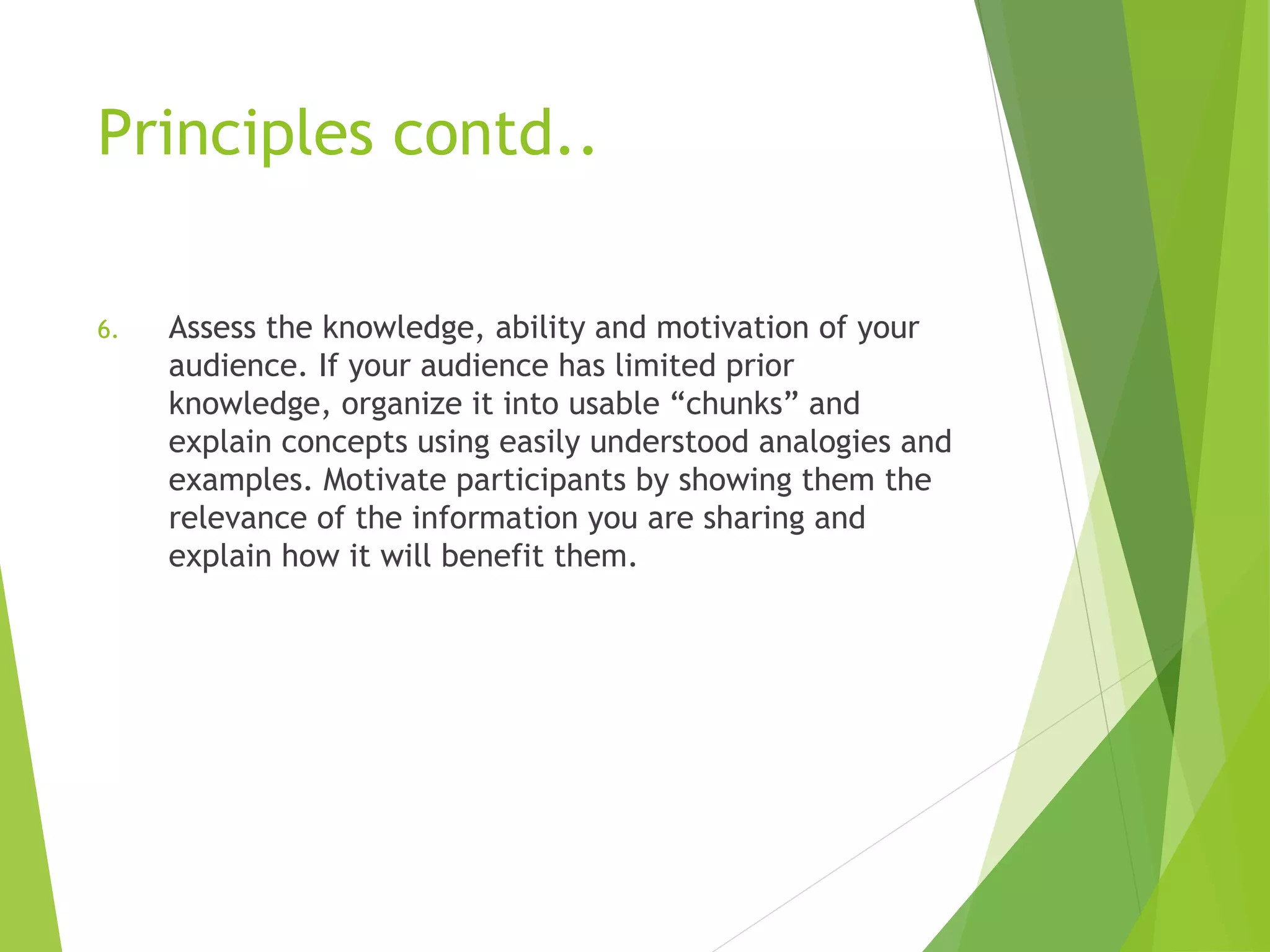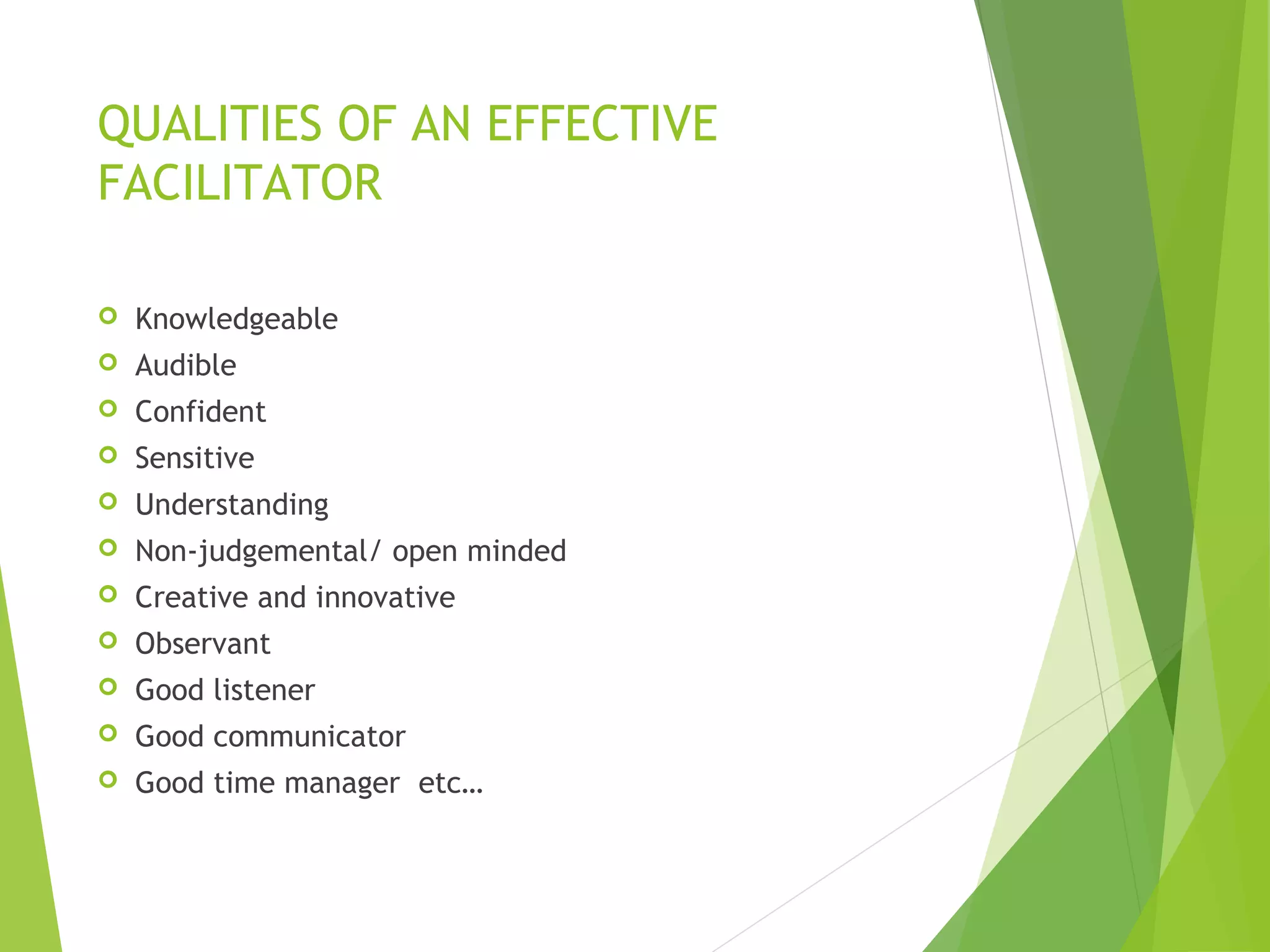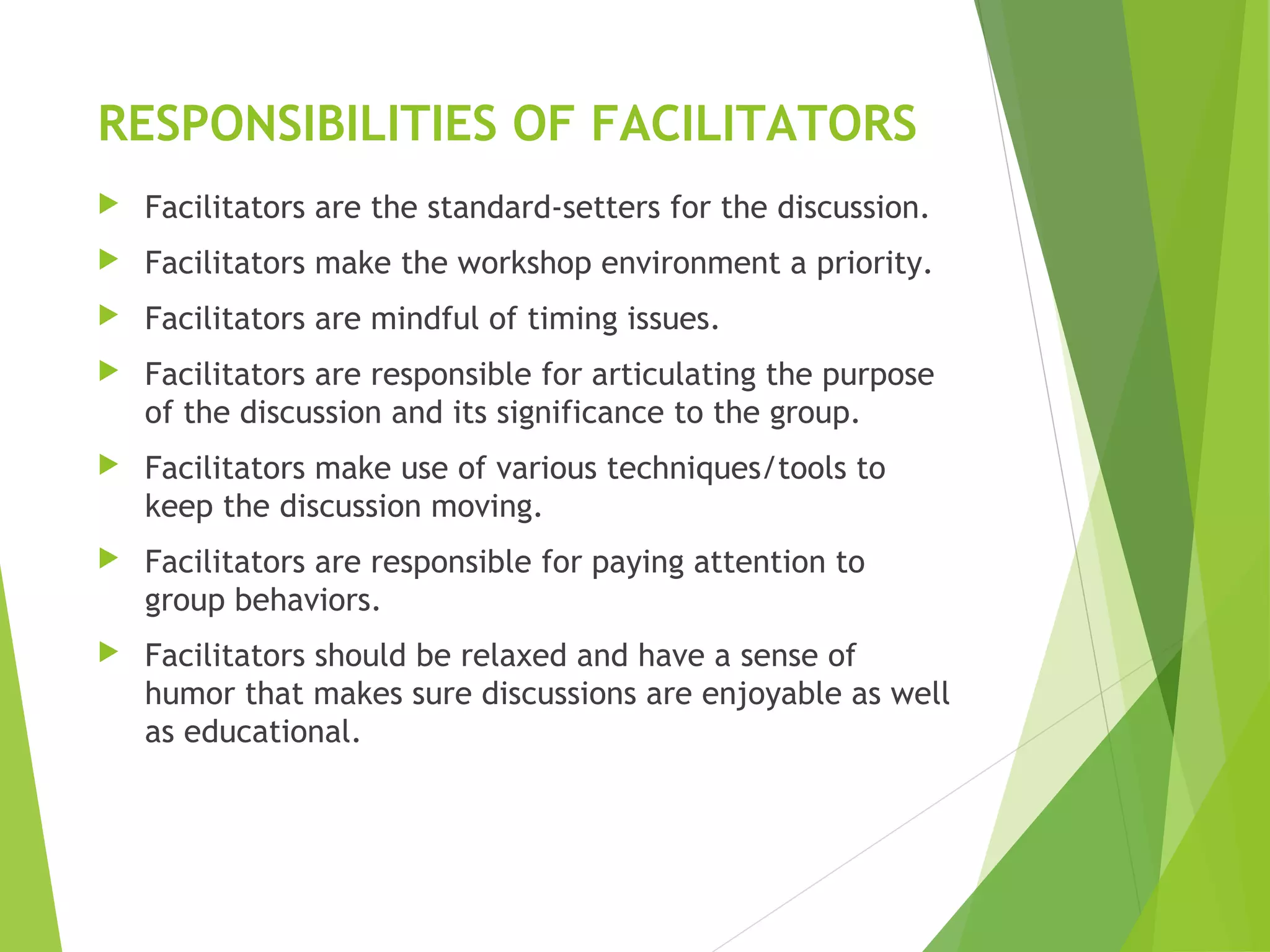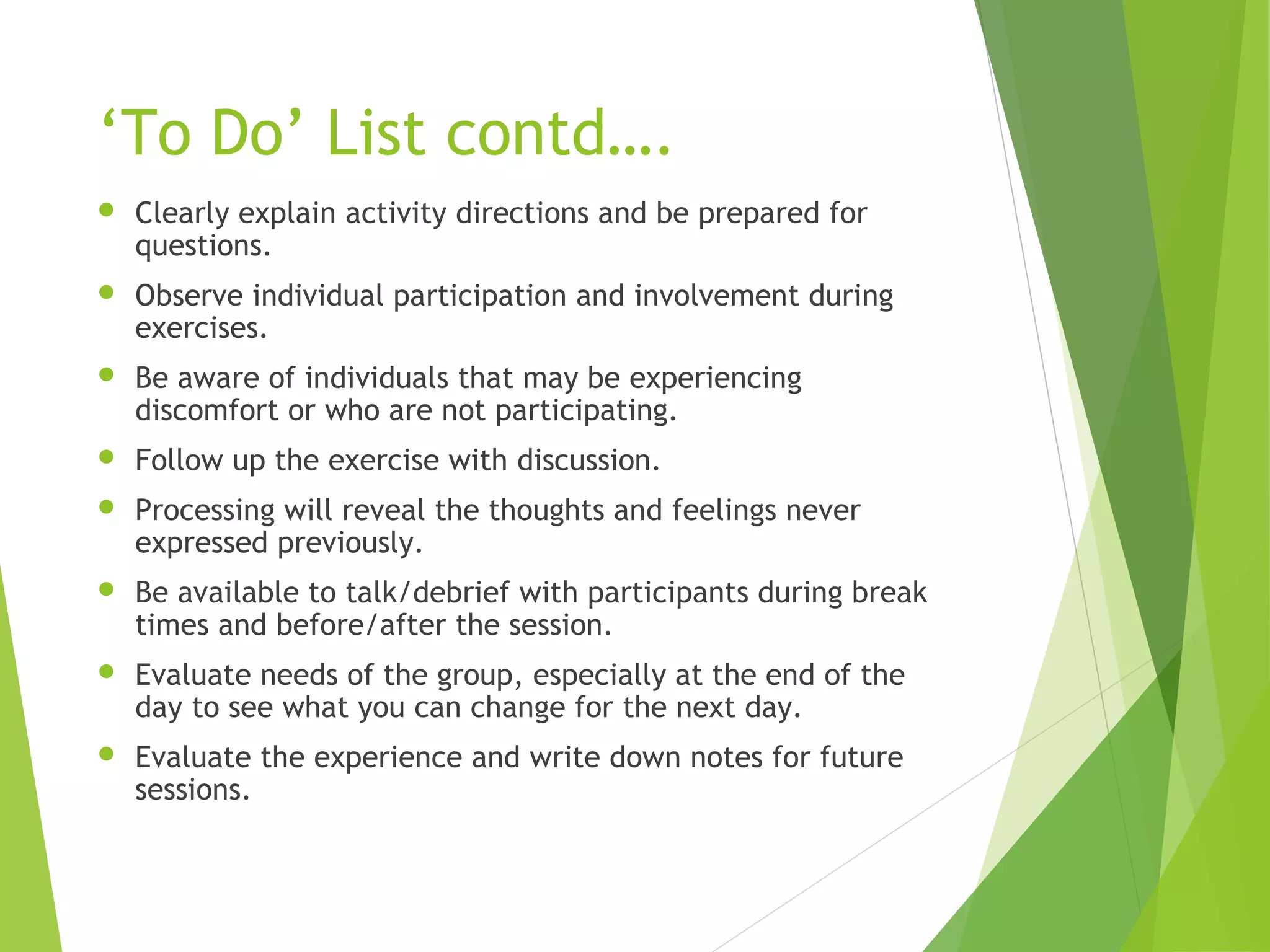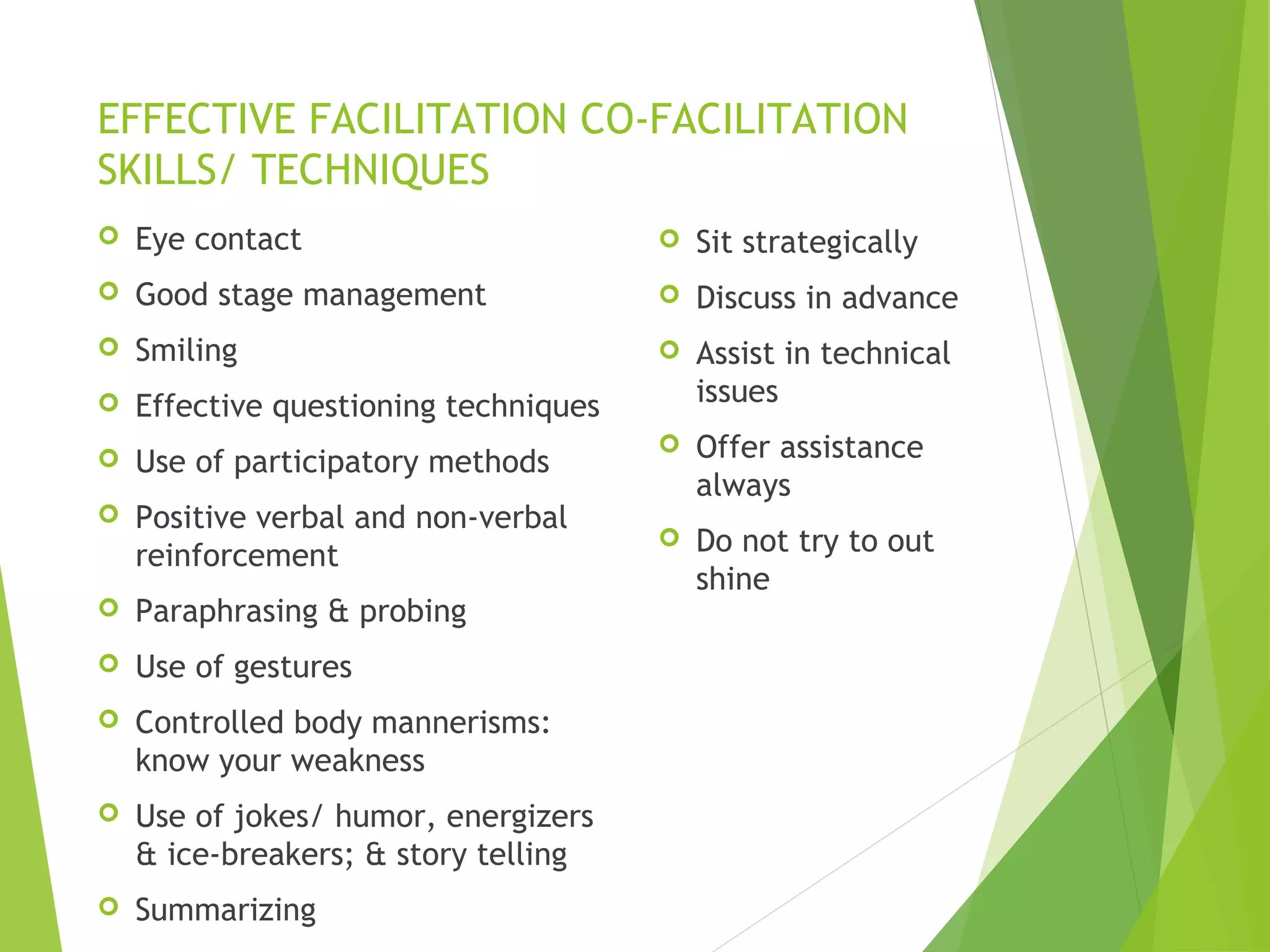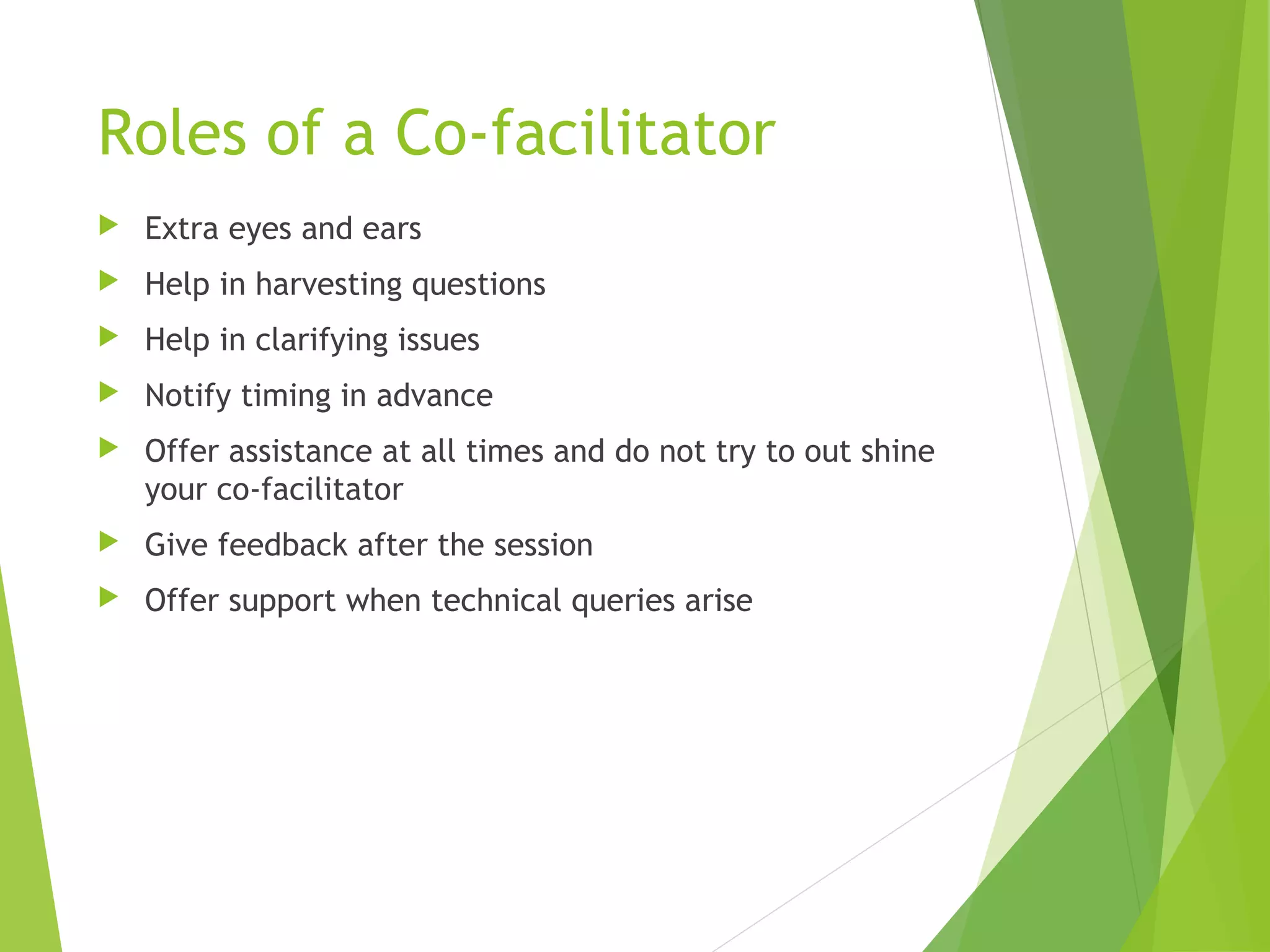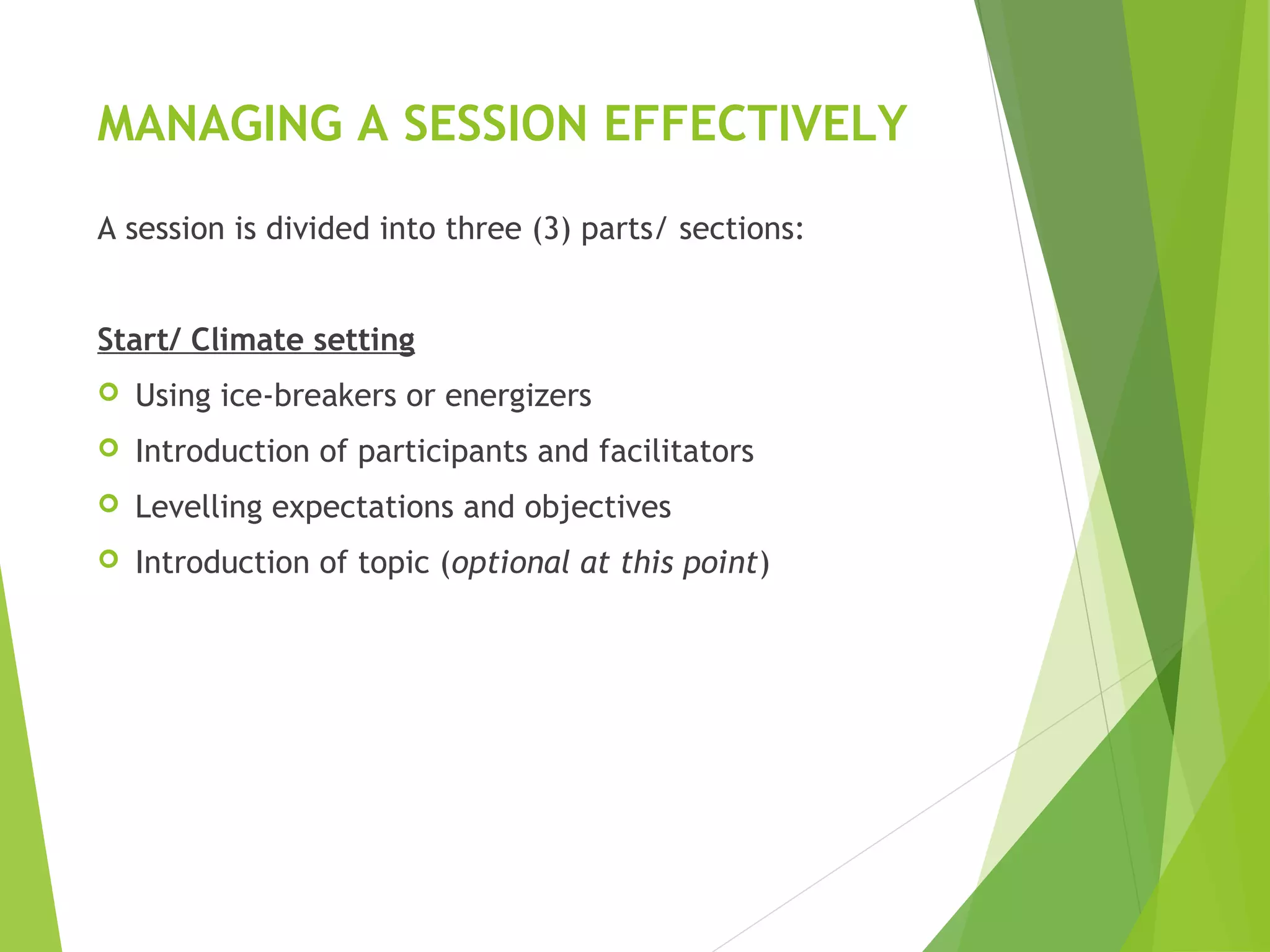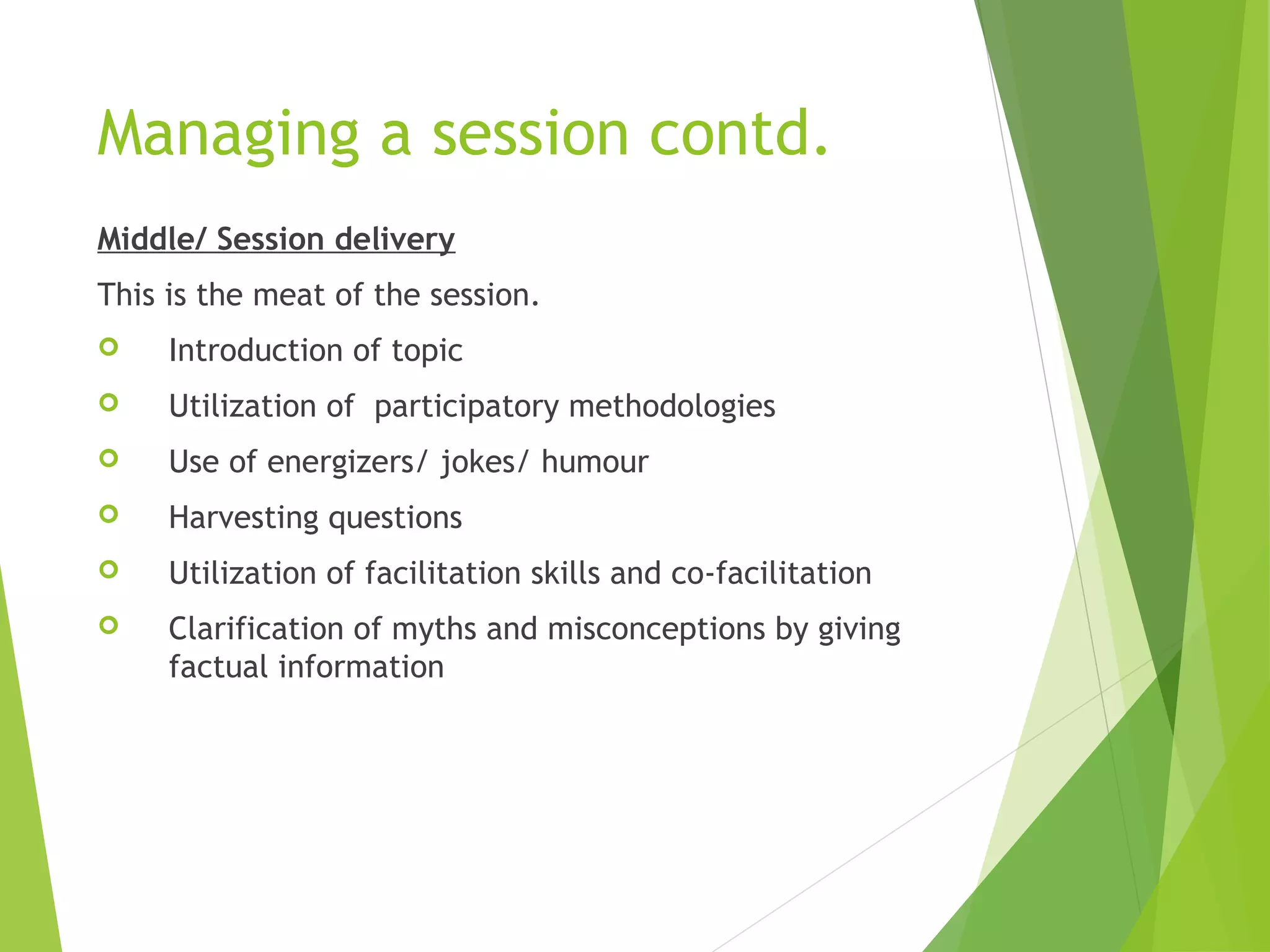This document provides guidance for facilitating training sessions. It begins by outlining questions facilitators should ask themselves in preparation, such as describing the purpose and objectives. Six basic facilitation principles are described, such as directing instruction at multiple senses and limiting information. Additional sections cover qualities of effective facilitators, their responsibilities, and techniques to use or avoid. Specific facilitation skills are discussed, including the roles of co-facilitators. The document concludes by describing how to structure a session into three parts: an opening to set the climate, a middle section for delivery, and a closing for summary.

